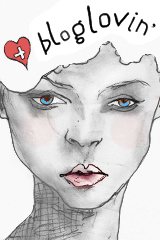Book: Understanding Depression
6.05.2014
Labels:
books,
dear teddy altman,
depression,
j.k. rowling,
life,
medicine,
mental health,
psychology,
public health,
the far side of despair,
understanding depression
To be honest, unlike some of my peers, I no longer have the time er, I no longer make time to read fiction books. I hear of authors like Neil Gaiman, Chuck Palahniuk (whose surname I had to google to make sure I type it right but whose Diary I would always look for in bookstores I randomly visit) who I hear, write really good stories but I just cannot make the time to read their creations. I do try to skim through the works of Paolo Coelho (because his The Alchemist greatly influence my life) and Malcolm Gladwell's Outliers (which I have not finished yet as of this writing). However, I really cannot make time to read other fiction novels because ever since I became a nurse and obtained my masters degree in public health, I constantly feel the need to read medical or public health books and journals, which, frankly, I rarely do! But personally, I feel rather less guilty not reading any book for that matter than spending time on a non-medical book. I hope that made sense.Nonetheless, I feel and I am quite behind my colleagues who are participating in public health discourse. For the past years, I have been into research, but not necessarily epidemiological research which is my dream and the reason why studied my masters for. But nothing is too late. Today, is not too late. That is why, upon our regular visit to Bookay-Ukay in Mahusay St., Quezon City, a bookstore that sells second hand books, aside from the biography, Diana , a book I bought for my mother who is a fan of the late princess, I purchased myself Understanding Depression: A Complete Guide to Its Diagnosis and Treatment which , as the title implies, is a guide in recognizing, understanding, and treating (biological) depression. The book I found was its first edition (1993). The second and more updated was published in 2005.
Depression is a concern that is close to my heart for personal and professional reasons. That is why when I saw this book, I bought it right away.
Here is a content (quote) from the book which I would like to share on this post:
Russell Hamptons, a psychologist who detailed his personal, emotional breakdown and his triumph over it on his autobiography, The Far Side of Despair (1975) wrote:
"If there were a physical disease that manifested itself in some particular ugly way, such as pustulating sores or a sloughing off of flesh accompanied by pain of an instense and chronic nature, readily visible to everyone, and if that disease affected fifteen million people in our country, and further, if there were virtually no help or succor for most of these persons, and they were forced to walk among us in their obvious agony, we would rise up as one social body in sympathy and anger. We would give of our resources, both human and economic, and we would plead and demand that this suffering be eased. There isn't such a physical disease, but there is such a disease of the mind, and about fifteen million people around us are suffering from it. But we have not risen in anger and sympathy, although they are walking among us and crying in their pain and anguish."
Mental health is not a priority concern in most asian countries including the Philippines (Meshvara, 2002). For one, the distribution of manpower in mental health care remains unequal. More than half of the mental health care specialists work in for-profit organizations (WHO, 2007). As of 2007, only four non-governmental organizations provide a system of support for both individuals with mental care needs and their families. Research on mental health in the country is also scant, with most of them focused on non-epidemiological assessments published in non-indexed journals thereby challenging their scientific quality. Studies utilizing data from the health government are few if not totally absent (WHO, 2007).
I bought this book because I have always had this belief, largely because of my educational background, that despite the situation of the mental health care system in the country, and even in other countries, people with depression can properly cope and be helped in dealing with the struggle caused by this condition. There are so many people out there who are (living) proof (e.g. J.K. Rowling) that depression is something that can be understood and treated despite certain circumstances. And I am not meaning to romanticize.
People who are battling depression and those who surround them and serve as their support system can properly and effectively deal with and treat depression. When we become aware and properly about this depression, we can certainly cope and treat this biological disease.
.jpeg)



Post a Comment